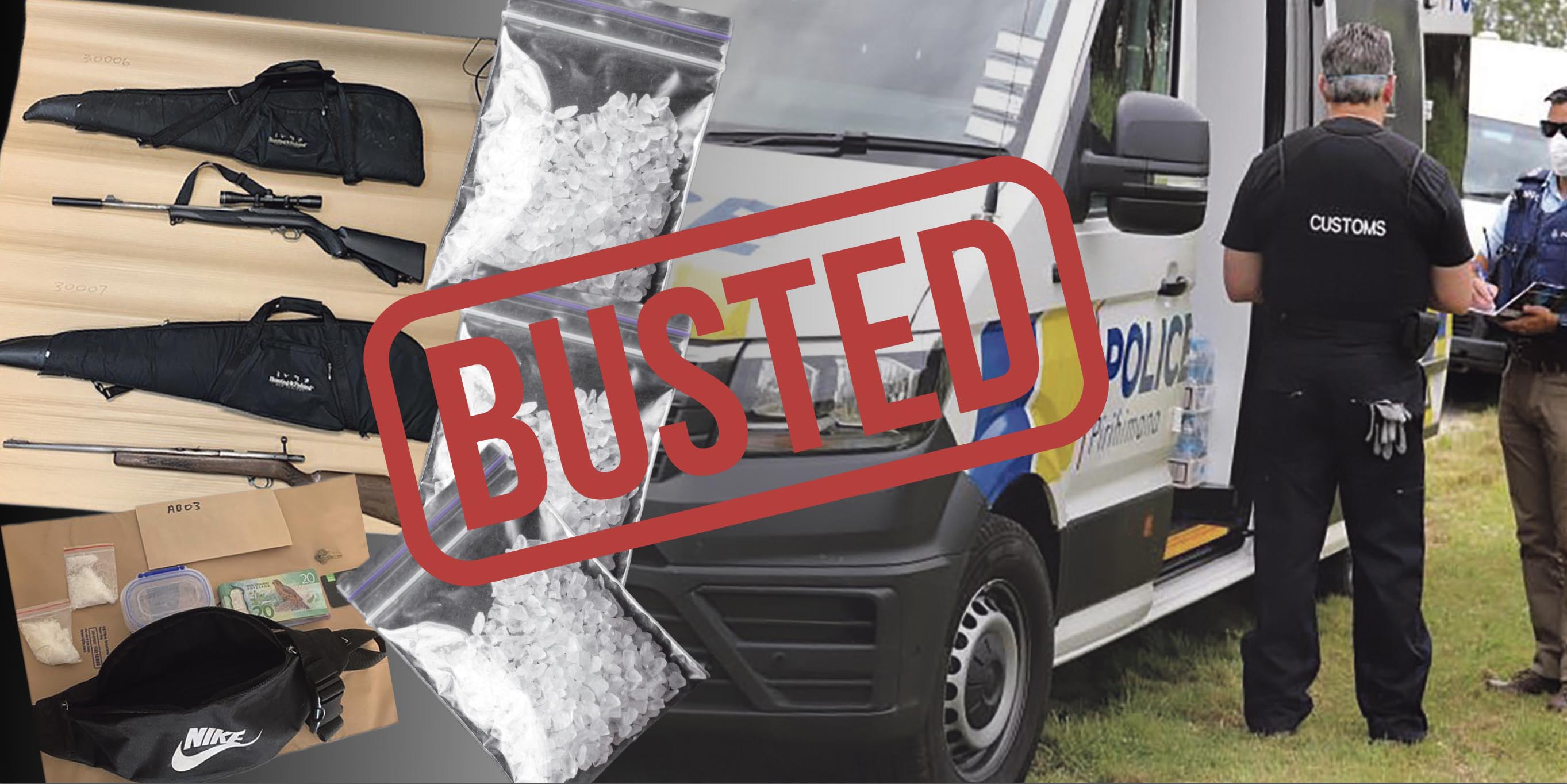On 14 June 2021, customs officials in New Zealand intercepted a parcel addressed to Quade Cooper, the name of a rugby player who formerly played for Australia’s national team, the Wallabies.
Even though Cooper was in no way involved in the events that subsequently transpired, it was probably his name on the parcel that piqued the officials’ interest.
They flagged and searched it, and found methamphetamine concealed inside. New Zealand authorities established that the narcotics had come from South Africa.
The country has featured in a major crackdown on an international drug-smuggling empire based in New Zealand that involved notorious organised crime groups such as the Headhunters and the Mongrel Mob, both motorcycle gangs.
The New Zealand Herald reported on 16 August that the final four of 13 offenders found guilty in the case had been sentenced. Nine received prison terms and the rest were sentenced to home detention for up to 12 months.
The New Zealand investigation into the drug smuggling empire, codenamed Operation Freya, was launched in 2020. According to a police statement issued in November 2021, it “was set up to investigate the smuggling of drugs from international destinations, including Africa, and the subsequent sale and supply in New Zealand”.
The statement said that, between March 2020 and June 2021, customs officials “intercepted 15 separate air cargo parcels or mail consignments”. Drugs were found “hidden in a range of concealments such as books, clothing and framed art”.
Eleven arrests for importing, manufacturing and supplying methamphetamine were made. A motorbike, boat and vehicles were confiscated and nearly R760,000 in cash, two firearms and ammunition were seized. Two more arrests followed.
Bridget Doell, a detective inspector with New Zealand’s police, said the syndicate was based in the North Island town of Ruakākā and its leaders belonged to the Headhunters and the Mongrel Mob.
Wrong choice
Last month, during the sentencing of Marcella Griffen, another one of the 13 convicted smugglers, the reference to South Africa came up. Griffen was handed a four-year prison term.
She had faced three charges: importing methamphetamine, conspiracy to import it and participating in an organised crime group. In explaining the sentence, the judge said the importation charge related to the 14 June 2021 interception when customs officials flagged the parcel addressed to “Quade Cooper” in Ruakākā.
Referring to the use of Cooper’s name, the judge said: “It was a foolhardy and a stupid choice in my view. That parcel contained 5kg of methamphetamine concealed inside plastic spools of ribbon tape. Its country of origin was South Africa.”
According to the facts established in the case, there had been communication between a freight company and the purported “Quade Cooper” via email. The freight company had advised that customs duty needed to be paid to receive the parcel.
“I have seen the relevant CCTV footage,” the judge added. “You can be seen paying the fee inside the bank while three of your co-defendants waited nearby, including your then partner whom I have previously sentenced, Taioma Gillett.”
In Gillett’s sentencing document, dated May 2024, the judge said the use of the name Quade Cooper was “just the most foolhardy choice of name imaginable that must have aroused the suspicions of officials”.
The address where he lived was searched and “police located a number of false driver licences which all bore your photograph but had different names, including Quade Cooper, and at least two other names”.
A phone belonging to Gillett was also seized and “search terms” on it were found to include several “highly suspicious entries, including a search for ‘drug bust’ news in New Zealand and the conversion of South African rand to New Zealand dollars”.
During Griffen’s sentencing, the lengths to which the accused in the case had gone to try to conceal what they were up to came up.
“The essential means of importation from overseas was that a number of false or artificial email addresses and identities were created, often involving very professional-looking but fake driver licences… Packages and parcels containing hidden drugs were sent to recipients who all had false names, although they had apparently used their correct addresses. It was done in this way to preserve anonymity as best as possible.”
Outlaw motorcycle gang
Daily Maverick previously reported on another drugs case involving South Africa, New Zealand and an Australian outlaw motorcycle gang, Comanchero.
In December 2022, Seiana Fakaosilea, who is originally from Australia but was later based in New Zealand, was sentenced to 13 years and two months in jail after pleading guilty to drug charges. He was the acting national commander of Comanchero.
Read more: Tik, cocaine and FBI-hacked phones revving relations between SA and Australian outlaw biker gang
According to sentencing notes in this case, Fakaosilea and his associates had entered into deals and “also agreed to import a further 600kg of methamphetamine from South Africa”.
An appeal document, dated June 2024 and related to convicted offenders including Fakaosilea, showed that the investigation into their methamphetamine smuggling group started in 2020, much like Operation Freya did.
“In 2020, the Police National Organised Crime Group began an investigation into the commercial supply of drugs in New Zealand. More than 50 charges were laid against a group of 14 people,” the document said.
It referenced a recorded conversation from March 2020 between Fakaosilea and another accused, Jie Huang.
Huang was recorded telling Fakaosilea: “If you guys got anyone who can help to bring [drugs] into New Zealand... And also, um, South Africa, there’s six hundred keys. And we don’t need to pay first.” (“Keys” was a reference to kilograms.)
Fakaosilea’s appeal against his conviction was dismissed, but his appeal against his prison sentence was allowed. It was substituted with a sentence of 10 years and eight months’ imprisonment. DM
This story first appeared in our weekly Daily Maverick 168 newspaper, which is available countrywide for R35.






